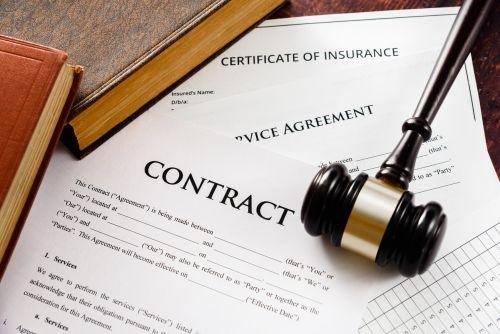Business Disputes FAQ

When you’re an entrepreneur, business disputes are inevitable. Unfortunately, when they arise, they can result in significant harm to your company and its bottom line. If you’re facing a business dispute — or you simply want to be prepared for any potential conflicts — you likely have many questions. Below are some of the most frequently asked questions of a business dispute law firm regarding business disputes.
Disputes can occur concerning nearly every aspect of business. While some can be prevented with risk mitigation, others may be unavoidable. Some common issues that can lead to conflict include breaches of contract, vendor disputes, shareholder disagreements, management decisions, employment issues, financing problems, and misuse of company funds. However, the specific issues your company might regularly encounter can largely depend upon the nature of the business and its operations.
If you own a business, it’s a good idea to have a trusted business dispute law firm on your side from the beginning. An attorney who handles business law matters doesn’t only resolve problems when they happen — they can help you take proactive measures to avoid disputes before they occur. They can also work with you to form a corporate entity, ensure compliance, draft contracts, protect your assets, and provide you with strategic advice every step of the way.
If you’re involved in a business dispute, the first thing that may come to mind is taking legal action. But before you file a lawsuit, it’s important to weigh the pros and cons. Commencing a lawsuit can be costly, and sometimes the amount of recoverable damages might not be worth the time and money spent on litigation. But if your financial damages are substantial and you have attempted to resolve the dispute without success, filing a lawsuit might be in your best interests.
Litigation should be a last resort for business-related conflicts. There are several forms of alternative dispute resolution that can help you achieve your desired results. Mediation, arbitration, and negotiation are three methods that can allow parties to find creative solutions and settle disputes efficiently without a trial in court.
The length of time it can take to resolve a business dispute depends on a number of factors, including the complexity of the matter, the other party’s willingness to settle, and whether the case goes to court. Generally, a case that goes through the litigation process can take several months or even a few years to conclude. How quickly the case moves can be contingent upon the court’s calendar and the amount of time the discovery process takes — which is often time-consuming, depending on how complicated the case is.
An injunction, also referred to as “equitable relief,” can be sought in addition to monetary damages in certain business disputes. If the request is granted, a court would issue an order requiring the defendant to cease the detrimental action or conduct. In addition, a judge may grant a preliminary injunction at the outset of litigation if a business owner can show irreparable harm would result if the behavior is not stopped immediately.
If you are anticipating litigation, documenting your case as thoroughly as possible can help to ensure a successful outcome. Save all correspondence with the other party, including e-mails, receipts, invoices, memos, or other documentation relevant to the dispute. Keep track of the dates and times of any conversations, as well as notes regarding your attempts to resolve the matter.
Illinois law recognizes both written and oral contracts as valid and enforceable — and a handshake is not required when a verbal agreement is made. However, it’s still beneficial to have a written contract in place. If there is a breach of contract, it can be difficult to prove the terms and conditions in court without them being documented in writing.
Breaches of contract are some of the most common and costly business disputes. Several legal remedies are available if you’ve suffered financial loss as a result of someone not upholding their end of a bargain you entered into. In a breach of contract case, you may be entitled to recover your actual financial damages, consequential damages, and sometimes punitive damages. Other remedies can include restitution, rescission of the contract, and specific performance.
If a company breaches a contract with you and subsequently goes out of business, obtaining a judgment can be challenging. But in some instances, you may still be able to recover. You might have a right to collect some of the corporation’s assets or sue the officers and shareholders directly. These matters can be extremely complex and it’s best to have the representation of an experienced business attorney who can advise you regarding your options.
Contact a Knowledgeable Illinois Business Dispute Law Firm
No matter what type of business dispute you’ve encountered, it’s essential to have the representation of a skilled business attorney who can protect your legal rights and financial interests. Located in Rolling Meadows, Litico Law Group is committed to serving the needs of entrepreneurs and small business owners in Illinois. With a focused commitment to assisting clients with achieving their objectives, we strive to reach positive results in every case. We welcome you to contact us at (847) 307-5942 to schedule a consultation to learn how we can assist you.
You may also be interested in:
Equitable Remedies in Illinois Business Litigation



